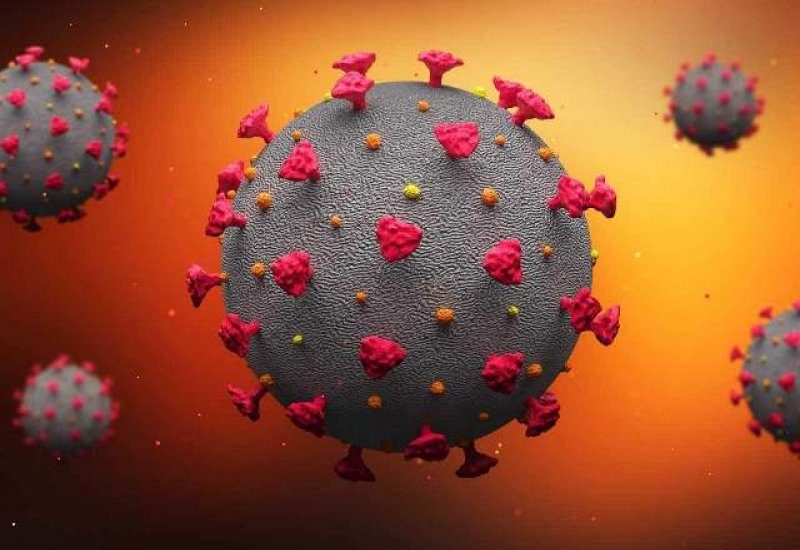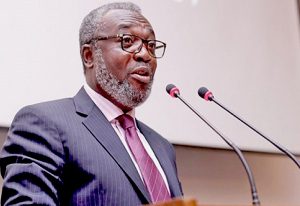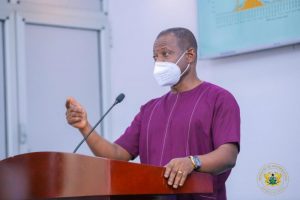Koku’s appetite for food has grown from bad to worse.
His ‘companion’ – Apeteshie – the king of drinks, is unable to make him eat well.
It is not about the taste, he tells Ama, his wife, and pounds his chest as he gulps the last of the local gin.
He painfully eats from a small kitchen table as his three sons look on from a distance – his new normal.
The family stopped eating together since he started handling COVID-19 dead bodies as an undertaker.
The job, though rewarding financially, robs him of the joy of eating and spending quality time with his family.
His wife, an orderly, is uncomfortable with how he embalms dead bodies – virtually with no protection and so cannot have him sit with them at the dining table for fear of being exposed to COVID-19 and other infectious diseases.
The sudden death of Johnny, a popular undertaker, and two of his compatriots in the Volta Region town of Kpando resulted in Koku’s new normal.
Peter Pariki-Kwashie, an Environmental Health Officer in charge of the burial teams in the Volta Region, says undertakers face a lot of risks because they are not protected.
He says his office organised an infection prevention control training for stakeholders but only the mortuary men attended. “The undertakers say they are busy and some are contracting the disease and dying…”.
Embalming, which is part of the work of undertakers, is the preservation of human remains against decomposition.
Experts say dead bodies spread diseases as they decompose so undertakers disinfect and prepare them to last longer.
The undertaker, primarily, is to make the corpse appear to be alive, aesthetically good and sometimes trendy for filing past.
In this part of the world, where funerals are often occasions to show off, with corpses dressed and presented in various ways to depict the profession of the dead, the market for the mortician is significantly huge.
Embalmers in developed countries hold certificates in Mortuary Science Degree Programmes, with many going into apprenticeship for years before obtaining their licenses.
But Koku says what is most needed is courage and not a degree – “I just want to make dead bodies look good and I feel I’m better than a scientist.”
“My only problem is that I’m courageous and happy at work but sad when I get home.”
Freedom, his friend, says, “This is an emotional job,” and stresses: “The only qualification is brazen courage!”
He started working as an undertaker at 11, when he was in Primary Four. It was his auntie who introduced him to the job of ‘showing love to the dead’.
He is now 23, and says, it is a calling and brags about having trained seven young men, two of whom, both teens, are working with him.
Many undertakers these days are teenage boys, with some hooked on narcotic substances.
It is intriguing to watch them work with enthusiasm, especially when they deal with more than a corpse in a day. It can also be spooky.
COVID-19
Unfortunately, it appears it is business as usual for undertakers, who go about their jobs without any protective equipment in the wake of COVID-19.
At one mortuary, Aziz is observed bathing a dead body with the wastewater splashing on him every now and then.
He believes that his mixture for the job – soda water, disinfectants, lemon juice – is strong enough to keep him safe.
At another mortuary, an undertaker has no protective gear apart from a face-mask and a torn surgical glove. Nonetheless, he busily sutures a wound on the body in front of him.
When they run out of surgical gloves, they use their bare hands to prepare the bodies, with just a sprinkle of talcum powder in the palms.
Aziz agrees that sometimes they touch the eyes, mouths and noses while preparing the bodies, but quickly adds, “God is protecting us.”
The situation is calamitous in the countryside, where more young people appoint themselves ‘professional undertakers’ through inheritance or after only a few weeks of apprenticeship, with hardly any knowledge of handling COVID-19 dead bodies.
The situation is even dire in areas where the cause of deaths are not investigated, leading to the possibility of many COVID-19 dead bodies being buried unreported.
Here, most undertakers are exposed to perfumes and aerosols, and also have physical contacts with corpses when dressing them. Many simply wash the reusable materials after preparing the corpses with their bare hands.
Experts say COVID-19 is more infectious in the dead than the living because the virus leaves the corpse in search of a new host to infect.
Research has shown that the virus, when not treated well in the body, can affect the liver, kidney, brain tissues and reproductive organs.
It also easily changes into different and more resistant strains, which undertakers can be exposed to, if care is not taken.
Professor Yao Tettey, a pathologist at the Korle-Bu Teaching Hospital, says undertakers are exposed not to only COVID-19 but tuberculosis and other infectious diseases, especially when the cause of death is not known.
He explains that during the “body reconstruction” undertakers can be infected if embalming fluids or creams do not have the right proportion of chemicals – “for instance if they inhale concentrated formalin, they can have upper respiratory problems…It is carcinogenic.”
Though COVID-19 cases and fatalities are relatively low in Africa, the continent must not be under any illusion that it is out of the woods.
Some countries have experienced second and third waves with fears of a fourth wave.
It is, therefore, imperative for leaders to consider the regularisation of undertakers for proper monitoring.
They need to be oriented on safe practices when handling COVID-19 corpses.
For instance, they must be in coverall dresses – impermeable attires that cover most parts of the body, leaving the face, hands and feet.
It is also recommended that they have three sets of hand gloves – the normal latex hand gloves, gynaecological hand gloves and utility hand gloves.
They are also to wear wellington boots, face masks, goggles, or face shields and ‘hair net’.
They must have chlorine solution for disinfecting dead bodies before and after handling them.
Moreso, they must be screened periodically for early detection and treatment of COVID-19 cases so they can continue to enjoy family love and not seclusion like the ‘courageous’ Koku.
That way, the continent can overcome the disease with COVID-19 positives not breaking its future.
Source: Ashantibiz
Submit your stories or articles to us via WhatsApp +233-245092915




